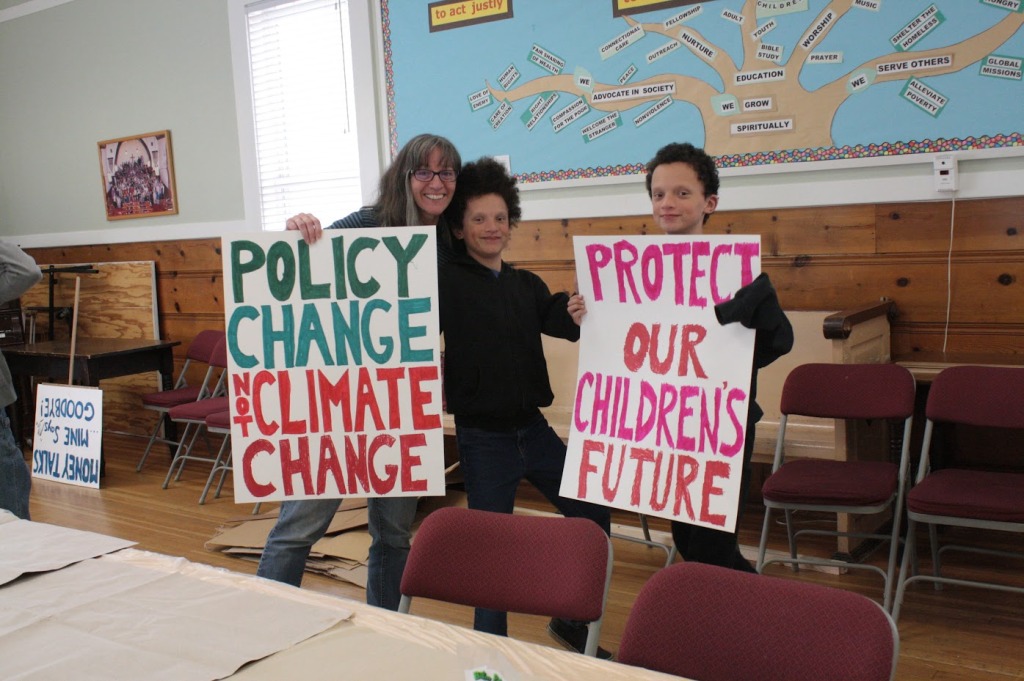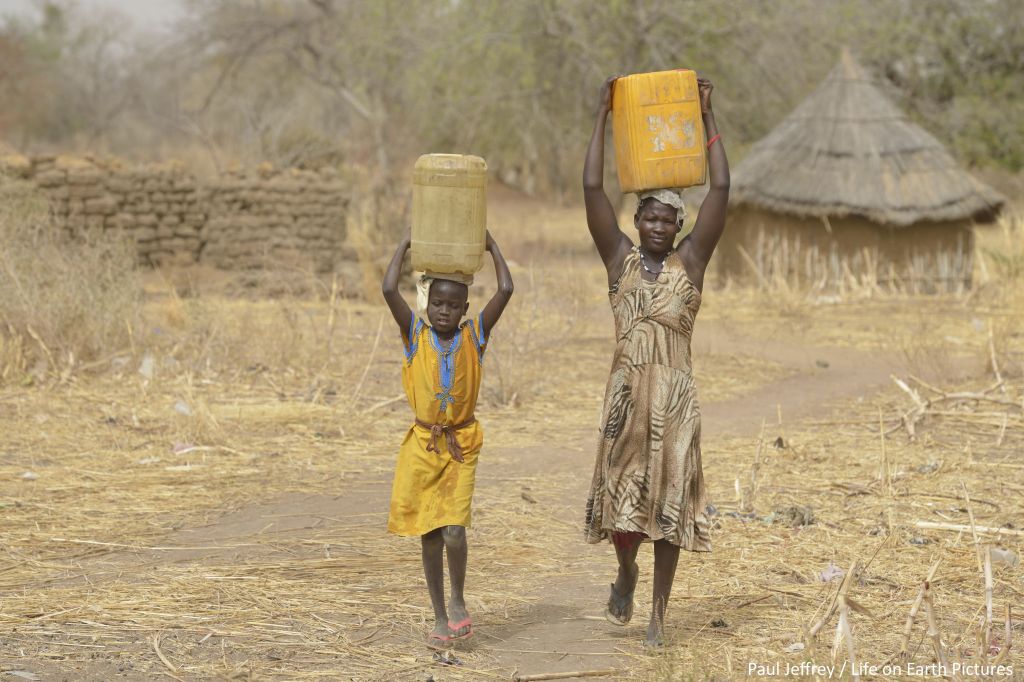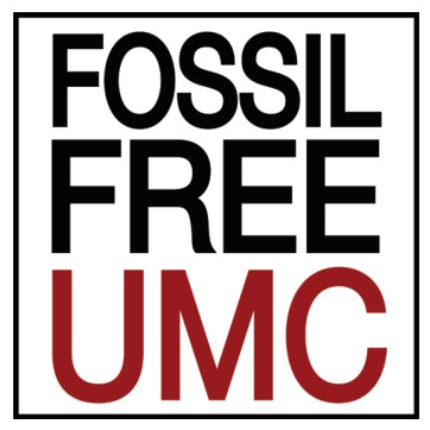“He called a little child and had him stand among them. And he said: “I tell you the truth, unless you change and become like little children, you will never enter the kingdom of heaven. Therefore, whoever humbles himself like this child is the greatest in the kingdom of heaven. And whoever welcomes a little child like this in my name welcomes me.” Matthew 18:2-5
This “Response to Wespath by Fossil Free UMC (Part 2)” addresses more of Wespath’s arguments against divestment from fossil fuels. (See “A Response to Wespath, Part One” here.) Before going further, I want to affirm that Fossil Free UMC applauds Wespath’s many positive social and environmental investments, including renewable energy, energy efficiency, sustainable agriculture, green buildings, and other forms of climate solutions. We support Wespath’s corporate engagement as a strategy for social and environmental change, including on issues of climate with companies that are heavy users of fossil fuels, including WEC Energy Group and Cummins, a diesel engine manufacturer. As for engaging with fossil fuel companies, Wespath worked hard and gave it their best shot. But the time for engagement with fossil fuel companies is over.
One point that Wespath makes repeatedly is that their focus is not on decarbonizing their portfolio; rather, their goal is to stop fossil fuels being burned “in the real world,” where climate impacts take place. In Wespath’s recent webinar on General Conference Legislation Q&A with Wespath Benefits and Investments, their rationale for engaging with fossil fuel corporations rather than divesting from them was stated like this: “If we can encourage the entire energy system to move towards a lower carbon future, that is what we believe is the most hopeful change that we can make to reducing the emissions in the real world that is so necessary to happen.” To this end Wespath claims that through engagement they are “creating uncomfortable conversations for people about what it means to drive accountability in this sector, which is still integral to how our economy is operating.”
Fossil Free UMC’s response is that despite decades of these “uncomfortable conversations” in corporate boardrooms engaging with Chevron, Exxon Mobil, Occidental Petroleum, and other fossil fuel giants, these corporations are doubling down on fossil fuels. Since the strategy of engagement does not convince these corporations to transition away from fossil fuels as the science says is needed, it will not help stop emissions in the real world.
Who are the Grownups?
In his recent article in The Crucial Years, Is $38 Trillion a Lot? about the estimated annual costs of damage from climate change by 2050, Bill McKibben quoted Todd Stern, longtime US climate negotiator, who recently said: “We are slowed down by those who think of themselves as grownups and believe decarbonization at the speed the climate community calls for is unrealistic.”
Who are the grownups in this scenario? Who are the children?

Is it too much to suggest that Wespath, with the status among the investment community that it has developed over the years, may be playing the part of the “grownups” that Todd Stern speaks of? Wespath promotes a “realistic” approach to climate action within the dominant economic system and seems to assume that there is time and space for such action over the coming years. Stern clarified his point about the “grownups”: “They say that we need to slow down, that what is being proposed [in cuts to greenhouse gas emissions] is unrealistic. You see it a lot in the business world too. It’s hard [to push for more urgency] because those ‘grownups’ have a lot of influence.”
In articles and webinars, Wespath staff speak of influencing “the real world” and “the entire energy system” to change through their engagement with fossil fuel companies. Their perspective is shaped by their Investment Beliefs. These beliefs include a “Diversified, Long-Term Perspective” based on “diversified portfolios of assets based on our long-term (30-40 years) risk and return assumptions.”
Their assumptions are surprisingly optimistic: “We are cognizant of global `megatrends,’ large-scale, disruptive changes that will influence how economies and markets evolve over long time horizons. We believe that the adaptability and resilience of humans, as evidenced by continued technological innovation, will continue to successfully address global problems. In addition, the continued expansion of the middle class will result in increased economic development across the globe for many years to come.” (Investment Beliefs)
This glowing optimism and faith in the current global system is far removed from the reality on the ground. It does not reflect the actual experiences of the world’s people, especially the children, who comprise the vast majority of climate change victims of death and harm to health. This perspective is unfathomable to people, including our young, who realize what is at stake with climate change, the immense suffering and loss already being experienced, and the massive ecological and social breakdown already taking place in countries around the world.
Todd Stern says that the “grownups” will only listen when the rest of us push. Those of us in the United Methodist Church who demand strong climate action of our boards, agencies, and other denominational leaders will not give up. We will continue to push.

Whoever we are and wherever we are, Jesus calls us to change, to become like little children, to humble ourselves like a child. This means renouncing our privilege and our conformity to this world, which Walter Wink called “the domination system” and Marcus Borg calls “the normalcy of civilization,” being transformed by the renewing of our minds (Romans 12:2), and entrusting ourselves and everything we love to the mercy of God in this terrifying time.
Whoever we are and wherever we are, Jesus calls us to welcome the children. This means listening and responding to the children, who grieve when they learn of animals going extinct and of the destruction of creation’s abundance. It means listening to young people who want to believe God’s promises: “plans to prosper you and not to harm you, plans to give you hope and a future” (Jeremiah 29:11). Welcoming the children means listening and responding to families in marginalized communities who are being harmed (especially the children) by fossil fuel pollution that turns their neighborhoods into sacrifice zones, and in regions and nations most vulnerable to climate change whose stability, lives, and livelihoods are being lost even though they have contributed least to climate change. The people who are most vulnerable are driving the movement for climate justice around the world, and these are the folks with whom we are called to be allies. They are not accepting the status quo but are calling for “system change not climate change.”
In the leadup to General Conference, Fossil Fuel UMC is calling on all people of faith and conscience to support our call for divestment from fossil fuels. Sign our petition here. Donate here to our work. Join us in seeking to move The United Methodist Church to exclude fossil fuels from our investments and move together toward and just and clean energy future.
For more on this topic find 10 reasons for Wespath to support fossil fuel divestment. You will find Fossil Free UMCs reasoned arguments on the following 10 points:
- We are called to faithful investing.
- Shareholder advocacy with fossil fuel companies is disproportionate to the magnitude of the climate crisis.
- Fossil fuel investments have underperformed; they pose a financial risk.
- The ‘Sustainable Economic Framework’ is not ecologically sustainable.
- Wespath can turn the goal of Net Zero into reality through divestment.
- Later is too late! Wespath’s Transition-Ready Portfolio is not designed to lower emissions now.
- Other ethical investment screens have not harmed our UMC pension fund.
- Advocating for plugging methane leaks is commendable, but not enough.
- Engaging with fossil fuel corporations gives them a veneer of legitimacy.
- The first shall be last? So many churches have divested—why not the UMC?
The Reverend Sharon Delgado is on the Coordinating Committee of the United Methodist Creation Justice Movement and is the Convener of Fossil Free UMC. She is author of The Cross in the Midst of Creation, Love in a Time of Climate Change, and Shaking the Gates of Hell.
Cover photo: Women and children look out of their house during November 2014 flooding in Meulaboh in Indonesia’s Aceh province. Flooding in the region has grown worse because of climate change and the proliferation of palm oil plantations, by Paul Jeffrey / Life on Earth Photos


2 responses to “Response to Wespath by Fossil Free UMC (Part 2) Become Like a Child”
Nicely crafted. As you make Wespath choose between religious and foss
LikeLike
[…] The basic information about our petition is at MFSA Plumbline on Divestment from Fossil Fuels. For more detailed talking points see: Ten Reasons Why The United Methodist Church Should Divest from Fossil Fuels, Ten Reasons for Central Conferences to Support Fossil Fuel Divestment, Ten Reasons for Wespath to Support Fossil Fuel Divestment, and Plain Talk: This is what’s at Stake. You might be interested in two recent open letters to Wespath: A Response to Wespath (Part One) and A Response to Wespath (Part 2), Become as a Child. […]
LikeLike